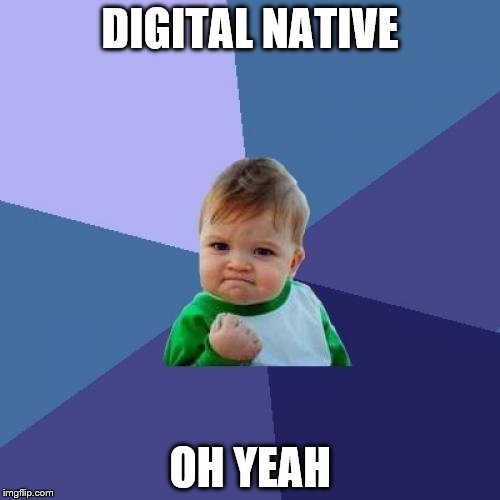"My interest is mainly in the role of education in creating the learning environments needed for providing all children and young people with the competencies needed to become literate in a digital culture and enhance their everyday knowledge, experiences, and skills."
I completely agree with this quote from chapter 7. It is one of my main goals as a future educator to allow students to use digital media to their full advantage in their education. They can have access to so much more learning and success, in my opinion, with digital media under their belt. They will be much more prepared for the work force as well.
"It's use within the student community has reached
such high levels that it at least matches and probably exceeds that of email (Judd, in press)".
This quote from chapter 8 amazed me. When I was younger, email was the only way to get a hold of someone other than phone or letter. Now that it's coming up as perhaps a second place to social media is astounding to me. I am not surprised though, because I Facebook message people all the time. It is almost faster to me- or I just think people will check their Facebook before their email.
"Montgomery has investigated the 'youth civic web'- platforms built for young people in order to invite them to participate. She concludes that interactive media is helping to provide young people with some of the essential skills for civic and political engagement by allowing them to learn about the critical issues of the day; insert their own voices into the public discourse; and actively participate in a rage of political issues (Montgomery, 2008)."
This excerpt from chapter 9 stuck out for a few reasons. Number one being that it relates so closely to this past week's political news- for gay marriage to be legal across the United States. I have seen just on my own Facebook the opinions of many, and the support, or disagreement on both sides. Seeing the freedom we all have to voice our own views about such policies or views is almost unheard of if we were to rewind just a few years. I think it's great that this participation is happening just because of the access we have to social media, or the internet in general. People can become educated on politics or policies and then actively participate in discussions with other people, without having to be part of a political office. Just us normal folks having the ability to learn, educate others, and collaborate together to expand our views and mind sets thanks to this digital age.
-------
When it comes to whether teachers should be responsible for developing digital literacies, I would say partially. I think courses should be offered at school specifically designated to focus on digital literacies, and I think teachers should be required to incorporate new uses in their lesson plans so children are exposed at least in that way. I don't think it should be SOLEY places on the teacher because socially children will learn new things on their own. Digital literacies can be focused on in the courses offered- much like gym, or music. Eventually it may take more of a hold on the educational scene and become a course like history or science.
I believe that the development of digital literacies can support the development of reading practices. Words are still words whether in print or on a computer screen. So children are still reading. Also, the learning process would most likely be more interactive from a digital standpoint, so children may actually have a better and more positive experience with digital literacy learning.
When it comes to academic writing practices, I am not quite sold that there is a substitute for physically writing. I think children should be able to read and write in cursive. I know that is leaving the learning community in some areas, but I personally disagree and think being able to write is part of being literate.
Bad Luck Brian

This meme about bad luck Brian may reflect with some recent (college) grads are feeling. I personally was not this literate with the online world until college. I had to rely on my instructional technology course back in my freshman year to even begin to grasp what some concepts were. This course is helping immensely as well. There's just so much information and I wish I would've been more prepared, or at least more introduced, in my high school years.


